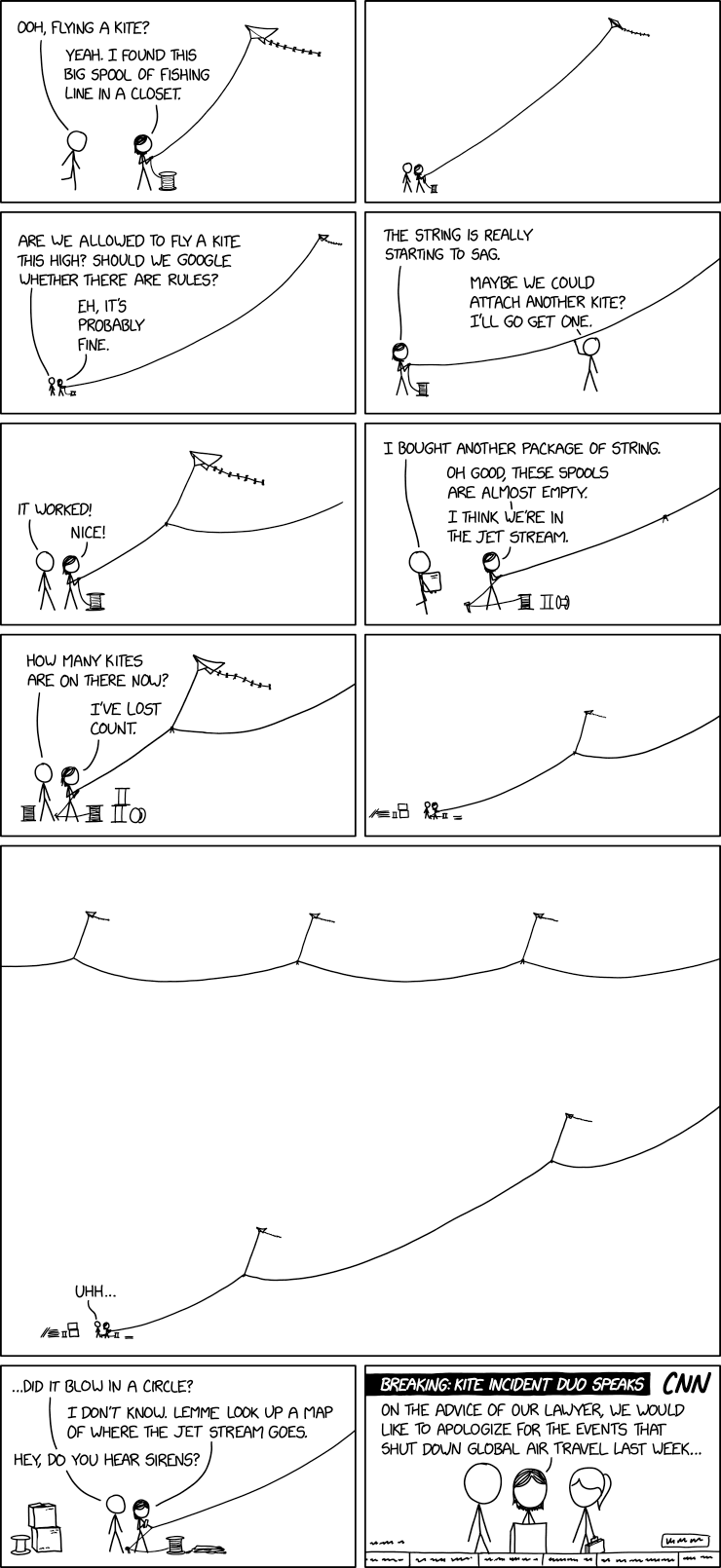A Conventional Boy is the most recent published novel in the Laundry Files as of 2025, but somewhere between the fourth and sixth in internal chronological order—it takes place at least a year after the events of The Fuller Memorandum and at least a year before the events of The Nightmare Stacks.
I began writing it in 2009, and it was originally going to be a long short story (a novelette—8000-16,000 words. But one thing after another got in the way, until I finally picked it up to try and finish it in 2022—at which point it ran away to 40,000 words! Which put it at the upper end of the novella length range. And then I sent it to my editor at Tor.com, who asked for some more scenes covering Derek's life in Camp Sunshine, which shoved it right over the threshold into "short novel" territory at 53,000 words. That's inconveniently short for a stand-alone novel this century (it'd have been fine in the 1950s; Asimov's original Foundation novels were fix-ups of two novellas that bulked up to roughly that length), so we made a decision to go back to the format of The Atrocity Archives—a short novel bundled with another story (or stories) and an explanatory essay. In this case, we chose two novelettes previously published on Tor.com, and an essay exploring the origins of the D&D Satanic Panic of the 1980s (which features heavily in this novel, and which seems eerily topical in the current—2020s—political climate).
(Why is it short, and not a full-sized novel? Well, I wrote it in 2022-23, the year I had COVID19 twice and badly—not hospital-grade badly, but it left me with brain fog for more than a year and I'm pretty sure it did some permanent damage. As it happens, a novella is structurally simpler than a novel (it typically needs only one or two plot strands, rather than three or more or some elaborate extras). and I need to be able to hold the structure of a story together in my head while I write it. A Conventional Boy was the most complicated thing I could have written in that condition without it being visibly defective. There are only two plot strands and some historical flashbacks, they're easily interleaved, and the main plot itself is fairly simple. When your brain is a mass of congealed porridge? Keeping it simple is good. It was accepted by Tor.com for print and ebook publication in 2023, and would normally have come out in 2024, but for business reasons was delayed until January 2025. So take this as my 2024 book, slightly delayed, and suffice to say that my next book—The Regicide Report, due out in January 2026—is back to full length again.)
So, what's it about?
I introduced a new but then-minor Laundry character called Derek the DM in The Nightmare Stacks: Derek is portly, short-sighted, middle-aged, and works in Forecasting Ops, the department of precognition (predicting the future, or trying to), a unit I introduced as a throwaway gag in the novelette Overtime (which is also part of the book). If you think about the implications for any length of time it becomes apparent that precognition is a winning tool for any kind of intelligence agency, so I had to hedge around it a bit: it turns out that Forecasting Ops are not infallible. They can be "jammed" by precognitives working for rival organizations. Focussing too closely on a precise future can actually make it less likely to come to pass. And different precognitives are less or more accurate. Derek is one of the Laundry's best forecasters, and also an invaluable operation planner—or scenario designer, as he'd call it, because he was, and is, a Dungeon Master at heart.
I figured out that Derek's back-story had to be fascinating before I even finished writing The Nightmare Stacks, and I actually planned to write A Conventional Boy next. But somehow it got away from me, and kept getting shoved back down my to-do list until Derek appeared again in The Labyrinth Index and I realized I had to get him nailed down before The Regicide Report (for reasons that will become clear when that novel comes out). So here we are.
Derek began DM'ing for his group of friends in the early 1980s, using the original AD&D rules (the last edition I played). The campaign he's been running in Camp Sunshine is based on the core AD&D rules, with his own mutant extensions: he's rewritten almost everything, because TTRPG rule books are expensive when you're either a 14 year old with a 14-yo's pocket money allowance or a trusty in a prison that pays wages of 30p an hour. So he doesn't recognize the Omphalos Corporation's LARP scenario as a cut-rate knock-off of The Hidden Shrine of Tamoachan, and he didn't have the money to keep up with subsequent editions of AD&D.
Yes, there are some self-referential bits in here. As with the TTRPGs in the New Management books, they eerily prefigure events in the outside world in the Laundryverse. Derek has no idea that naming his homebrew ruleset and campaign Cult of the Black Pharaoh might be problematic until he met Iris Carpenter, Bob's treacherous manager from The Fuller Memorandum (and now Derek's boss in the camp, where she's serving out her sentence running the recreational services). Yes, the game scenario he runs at DiceCon is a garbled version of Eve's adventure in Quantum of Nightmares. (There's a reason he gets pulled into Forecasting Ops!)
DiceCon is set in Scarfolk—for further information, please re-read. Richard Littler's excellent satire of late 1970s north-west England exactly nails the ambiance I wanted for the setting, and Camp Sunshine was already set not far from there: so yes, this is a deliberate homage to Scarfolk (in parts).
And finally, Piranha Solution is real.
You can buy A Conventional Boy here (North America) or here (UK/EU).

